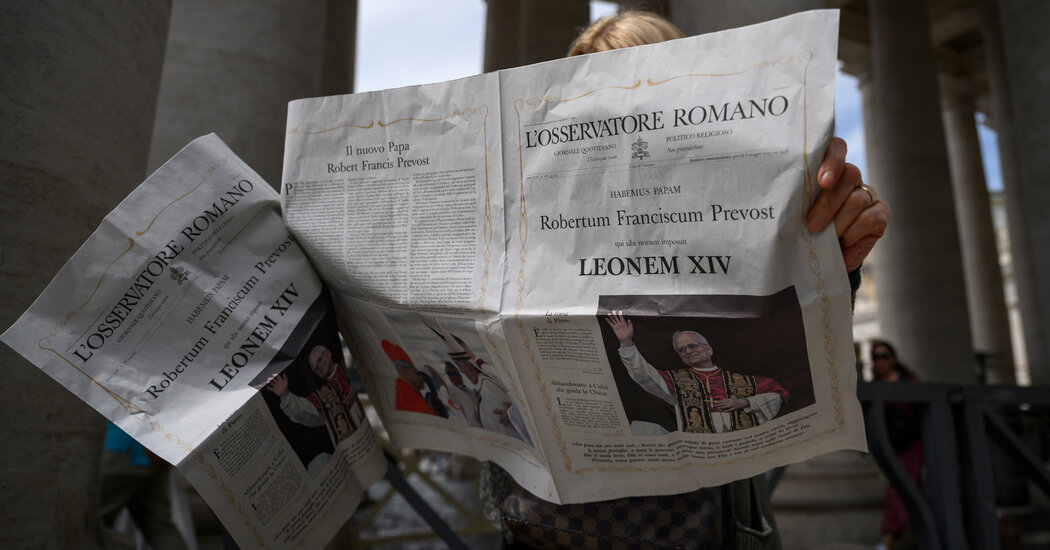If it’s really true, as Michael Wolff reported on Monday for Richard Rushfield’s Hollywood newsletter The Ankler, that Random House will not be releasing a planned compilation of Norman Mailer’s writings on some sort of political-correctness grounds — Mailer’s 1957 essay “The White Negro” was allegedly invoked as a cassus cancellatus — then honestly, I’m a little bit disappointed in cancel culture.
The Mailer estate’s representative has disputed the report, and Random House claims it never planned to publish the collection. But the book is reportedly moving to a telling destination: the same specializing-in-the-deplorable publishing house that took on Woody Allen’s memoir and picked up Blake Bailey’s Philip Roth biography.
If Mailer was really given a politically motivated push, it’s a sign that our would-be apparatchiks are getting lazy. To take aim at J.K. Rowling, Dave Chappelle or even Dr. Seuss shows real censorious ambition. But to cancel Mailer at this moment would be an act of superfluity, like canceling Booth Tarkington or James Whitcomb Riley — a pointless kick to a fundamentally anachronistic character.
I don’t mean that Mailer deserves permanent diminishment — far from it. But his reputational decline is so overdetermined, his persona so intensely out of step with our own era — the brawling macho solipsist who stabbed his own wife with a penknife — as to make him a comically easy and therefore pointless target for cancellation.
Who would be a more worthy and imposing target, you might ask, if I were handing out assignments to the censors? Well, why not one of Mailer’s still-beloved contemporaries, a woman whose literary cult made her recent passing a major media event?
You want to impress me? You want to flex some cultural muscle? Let’s see you cancel Joan Didion.
I’m even ready with the material you need. Maybe you’ve heard dire things about the right’s fixation on so-called cultural Marxism — basically the idea that contemporary progressivism is just communism reborn, but with identity-based groups taking on the role of the proletariat. Well, here is an example of that dangerous reactionary idea, applied to feminism in particular:
This is from Didion’s famous/infamous critique “The Women’s Movement,” a version of which ran in this very newspaper in 1972.
The essay is not a dogmatic attack on the Marxist ideas that it discerns in feminism; it offers its critique in the name of “those of us who remain committed mainly to the exploration of moral distinctions and ambiguities.” But that critique is so extraordinarily harsh — “the astral discontent with actual lives, actual men, the denial of the real generative possibilities of adult sexual life” — and so obviously applicable to contemporary styles of thought that if it were published today, it would certainly be deemed reactionary, a get-thee-to-Substack offense, the sort of verbal violence that can run only in either the right-wing press or Harper’s Magazine.
And if “The Women’s Movement” is a particularly stinging example of reactionary Didion, her early essay collections offer many others: Didion on the romance of John Wayne, Didion on the bureaucracy, Didion casting a cold eye on the hippies and what became the Summer of Love, Didion taking down all of 1960s-era liberal Protestantism in “James Pike, American,” her brutal backward glance at a celebrity bishop.
That these essays are not all overtly political only makes their critiques that much more lethal. If all fans of Didion have something they particularly owe her, then what she offered to admirers on the right was an example of how to write conservative essays that were first and foremost simply essays, their conservatism a matter of atmosphere and attitude rather than tedious polemic.
This reactionary streak is not news to Didion’s liberal admirers. In the recent obituaries you could see it enfolded into a larger narrative of her career, in which the conservative aspect of her writing — the Didion who began as a Goldwater voter and National Review contributor — was something she gradually questioned and then transcended, coming over to a deeper skepticism about her country, the particularly American patterns of exclusion and oppression, and the Republican Party of Ronald Reagan and George W. Bush.
This narrative, in which Didion (to quote Hilton Als of The New Yorker) inherited a mythology and then “began to see the cracks, and to wonder what those cracks meant,” is part of her protection against contemporary cancellation. It’s also accurate, so far as it goes: She did change ideologically; she did become more politically liberal in her attitudes and theories and commitments, and in that sense she genuinely belongs to her left-of-center admirers.
But like many great writers, she doesn’t belong just to the ideological faction she happened to align with late in life. And on behalf of the conservative Didion, two things should be said.
The first is that part of her conversion — not all, but part — actually reflects a continuity, in which Didion retained her coolness to enthusiasm and utopianism but simply applied it to the enthusiasms and utopianism of the Reaganite right, once the Reaganites seemed to become more powerful than hippies, feminists or progressive bishops. (In this reading she had something in common with V.S. Naipaul, another right-leaning littérateur, whose work she once praised in The New York Review of Books for its preference for dazzling reality over imprisoning ideology.) As the American right became more ideological, she naturally turned away from it, sustaining a small-c conservative skepticism of American “dreampolitik” both when left-wing dreampolitik ruled the culture and, in the 1980s and again after Sept. 11, when right-wing dreampolitik took its place.
There is a loose collection of writers, from Kevin Phillips to Michael Lind, who occupy a similar ground, belonging in some sense to the right but then, by the George W. Bush era, standing outside it, in judgment or critique. Many of them were particularly alienated, as Didion seemed to be, by the Bush-era G.O.P.’s Southern and evangelical inflection.
But Didion, you could say, was alienated from the modern right twice over, because the conservative movement’s more secular aspect, its Western manifestation, represented precisely the postwar form of Californian life — the vast suburbia of Orange County, the world of defense contractors and aerospace engineers — that displaced her family’s agrarian, older-Californian world. Reaganism was for California’s newcomers, and she was rooted in the prior dispensation.
And the specifically old-Californian aspect of her vision also offers a case study in the other thing to be said for the conservative Didion — which is that her earlier, more right-leaning writing is just somewhat better than her later work. Not completely or in every case: She had brilliance in every phase of her career. But there is a reason that “Slouching Towards Bethlehem” and “The White Album” have had stronger afterlives than a later collection like “Political Fictions,” which, for all its skill and insight and maturity, feels less unique, less pure and distinctive, than the coolly portentous vision of the ’60s that made her famous in the first place.
Accounts of her political transformation often place a special stress on “Where I Was From,” her revisionist 2003 meditation on her native state and familial mythos. Writing in The New Republic after her death, Jacob Bacharach described it as “a narrative of conversion — or, maybe, of repudiation: the discovery, after a lifetime of unthinking faith, that the same lifetime’s worth of steadily accumulating doubts suddenly rolls down the mountainside and drowns out the old, mumbled liturgies.” Writing in 2015, Louis Menand in The New Yorker called it “the central book in Didion’s career.”
If we regard Didion’s career primarily in terms of her conversion, then Menand is right — “Where I Was From” offers the clearest sense of transformation, woven together with a critique and even repudiation of some of her early writing. But if you read the book side by side with that earlier work — from “Run, River,” the Californian novel her later book critiques, to “Notes From a Native Daughter,” an essay in “Slouching Towards Bethlehem” — it feels overlong and overcooked, less a radical revision and more a too-literal unpacking of the uncertainties and ambiguities that she handled with more subtlety and complexity early on.
In a key moment in “Where I Was From,”Didion takes her daughter, Quintana, to Old Sacramento, to show her the places steeped in family lore, and partway through realizes the falsity of the experience:
Now here is Didion in “Notes From a Native Daughter,” making a similar point but with more ambiguity:
See how the earlier essay, the earlier passage, contains the later idea — the falseness or unreality of family history and personal memory — but also conveys more complexity and mystery, the way that something can be unreal and real at the same time, the impossibility of making the clean separation between past and present, narrative and memory and experience, that the later book tries more crudely to establish.
Though perhaps I am also drawn to the earlier Didion’s ambiguities because I am myself from California in a peculiar, attenuated way, and I have my own borrowed memories that I’m reluctant to give up. I was born in San Francisco, my father grew up in Santa Monica, and my sister lives in Los Angeles today. But I have never really lived there; we were distant from my father’s family growing up, and so my strong sense of that other coast, my powerful feeling of connection, is entirely the result of those “traces of someone else’s memory” — plus, of course, many years of reading the essays of Joan Didion.
The migration Didion made away from a certain kind of conservative nostalgia, Bacharach suggests in his essay, is “a metonym for a larger American experience of history as a dream from which we have to wake up in order to write it down.”
But Didion’s best work, even when it wasn’t her last word, denied the reader precisely that kind of clean dichotomy. The dream alone can be dangerous; it can curdle into ideology and fantasy. But the waking world isn’t all there is either, and you can’t describe reality fully unless you stay partway inside the dreams, the myths, the memories that don’t belong to you alone.
The Times is committed to publishing a diversity of letters to the editor. We’d like to hear what you think about this or any of our articles. Here are some tips. And here’s our email: letters@nytimes.com.
Follow The New York Times Opinion section on Facebook, Twitter (@NYTOpinion) and Instagram.



